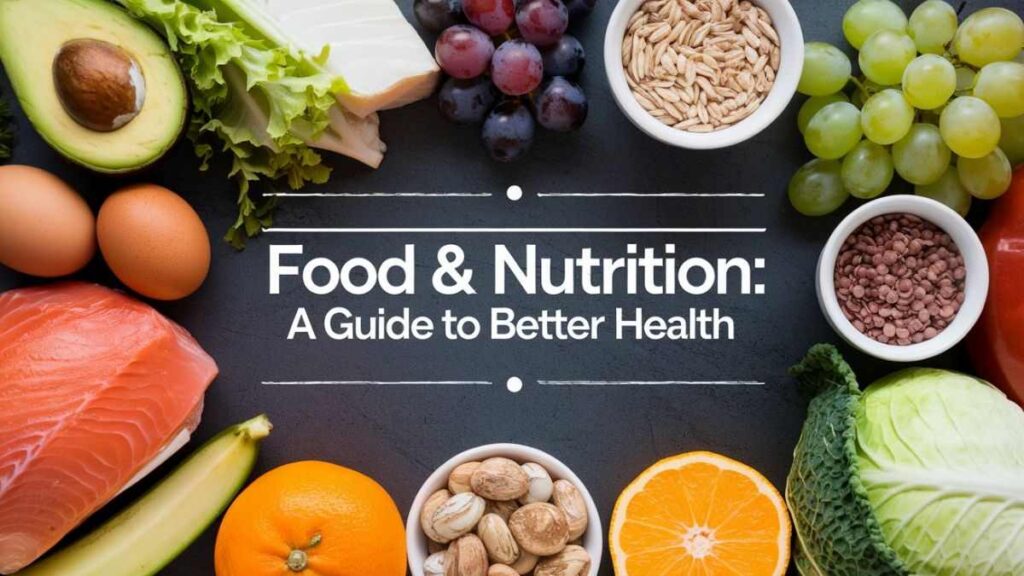
Table of Contents
Managing Your Diet for Optimal Health
Managing what you eat and understanding proper nutrition are essential steps towards a healthier life. By paying close attention to your daily intake, you can maintain your health or improve it over time.
What is Balanced Nutrition?
Food and nutrition provide the energy our bodies need to function. We must replenish these essential nutrients daily. Water plays a critical role in nutrition, while proteins, fats, and carbohydrates are the building blocks of our diet. Additionally, vitamins and minerals are key to sustaining good health.
Important Note for Pregnant Women and Older Adults
For certain groups like pregnant women or people over 50, specific nutrients such as vitamin D, calcium, and iron become particularly crucial. In these cases, dietary supplements might be needed to ensure nutritional balance.
Building a Healthy Diet
A nutritious diet consists of primarily natural, unprocessed foods.
Here are the major components of a healthy eating plan:
- Fruits and Vegetables: Include a wide variety, especially red, orange, and dark green vegetables.
- Whole Grains: Opt for whole wheat and brown rice over refined grains.
- Dairy: For adults, low-fat or fat-free dairy products are recommended.
- Protein: Choose lean sources like poultry, seafood, eggs, beans, legumes, and soy products. Nuts and seeds (unsalted) are also excellent protein choices. Foods to Avoid
Good nutrition also means being mindful of the foods to limit or avoid: - Sodium: Processed foods tend to be high in salt, which can be dangerous for those with high blood pressure.
- Cholesterol: Consuming less than 300 milligrams per day is recommended, especially found in full-fat dairy and meats.
- Unhealthy Fats: Avoid solid fats, fried foods, and trans fats found in many processed items like margarine.
- Refined Sugars and Grains: These are harmful, particularly for people with diabetes.
- Alcohol: Excessive consumption can harm your health. Stick to one drink a day for women and two for men.
Nutritional Deficiencies: Are You at Risk?
Even if you eat enough, an unbalanced diet can still put you at risk for deficiencies.
Some factors that may increase the risk of nutritional gaps include:
- Pregnancy: Increased need for certain vitamins and minerals.
- Medications: Some drugs (e.g., for high blood pressure) may affect nutrient absorption.
- Surgical Conditions: Weight loss surgery or intestinal diseases can impair nutrient uptake.
- Alcoholism: Alcoholics often struggle with proper nutrition.
Common Nutritional Deficiencies
- Iron Deficiency Anemia: Iron is essential for carrying oxygen in your blood. Without enough, your body won’t function properly.
- Vitamin D Deficiency: This leads to poor calcium absorption, affecting bone health.
- Vitamin B Deficiencies: Low levels of B vitamins (like B1, B2, B3, and B12) can lead to conditions such as beriberi, pellagra, and even nerve problems.
Other Deficiencies to Watch For:
- Vitamin A: Can cause night blindness.
- Vitamin C: Leads to scurvy.
- Vitamin K: Impacts blood clotting.
- Magnesium and Potassium: Certain health conditions or medications can lead to deficiencies in these essential minerals.
Prevention Tip:
Eating a varied diet can help prevent these issues. Supplements may sometimes be necessary (such as during pregnancy or nursing).
Diseases and Conditions Linked to Nutrition
Certain illnesses are closely tied to what we eat:
- Food Poisoning: Caused by bacteria in contaminated food.
- Food Allergies: Common allergens include peanuts, shellfish, and gluten (for those with celiac disease).
- Digestive Issues: Conditions like IBS, GERD, and ulcerative colitis are directly impacted by diet.
For other conditions, diet influences disease progression. For example:
- Diabetes: Managing carbohydrate intake is essential for controlling blood sugar levels.
- High Blood Pressure: Reducing salt can help manage hypertension.
- Heart Disease and High Cholesterol: Unhealthy fats and hydrogenated oils can contribute to clogged arteries.
- Osteoporosis: A lack of calcium and vitamin D can lead to weakened bones.
- Cancer: Obesity and poor nutrition are risk factors for cancers like breast, colon, and kidney cancer. Nutrient Breakdown: Calories in Macronutrients
- Carbohydrates: 4 calories per gram
- Protein: 4 calories per gram
- Fat: 9 calories per gram
Tip: This information is usually found on nutrition labels, helping you make informed choices.
The Essential Nutrients: What Should You Be Eating?
To stay healthy, everyone needs a daily intake of these seven key nutrients:
- Carbohydrates: Your body’s main energy source.
- Proteins: Critical for muscle growth and repair.
- Fats: Necessary for brain and nerve function.
- Vitamins: Support various bodily functions, from immunity to skin health.
- Minerals: Essential for bone health, oxygen transport, and more.
- Fiber: Promotes digestive health and helps maintain cholesterol levels.
- Water: Vital for every cell in the body. Types of Food for a Healthy Diet
Food can be classified into seven different groups, each serving a unique purpose in your diet: - Drinks: Keep you hydrated (water, unsweetened tea).
- Carbohydrates: Provide energy (whole grains, potatoes).
- Fruits & Vegetables: Rich in vitamins, minerals, and fiber.
- Dairy: Builds strong bones (low-fat options).
- Meat/Fish/Eggs: Provide protein and important nutrients.
- Fats: Choose healthy fats like those from avocados and olive oil.
- Sugary Foods: Should be limited as they offer little nutritional value.
The 5 Best Nutrient-Dense Foods
Want to maximize your nutrition? Incorporate these into your meals:
- Lentils: High in fiber and protein.
- Brown Rice: A whole grain that provides sustained energy.
- Potatoes (White and Sweet): Loaded with vitamins and minerals.
- Black Beans: A powerhouse of fiber, protein, and iron.
- Quinoa: A complete protein that’s also rich in fiber.
Bottom Line: Good nutrition isn’t just about avoiding unhealthy foods; it’s about making informed choices that support your long-term health. By understanding the fundamentals of food and nutrition, you can take control of your well-being.


